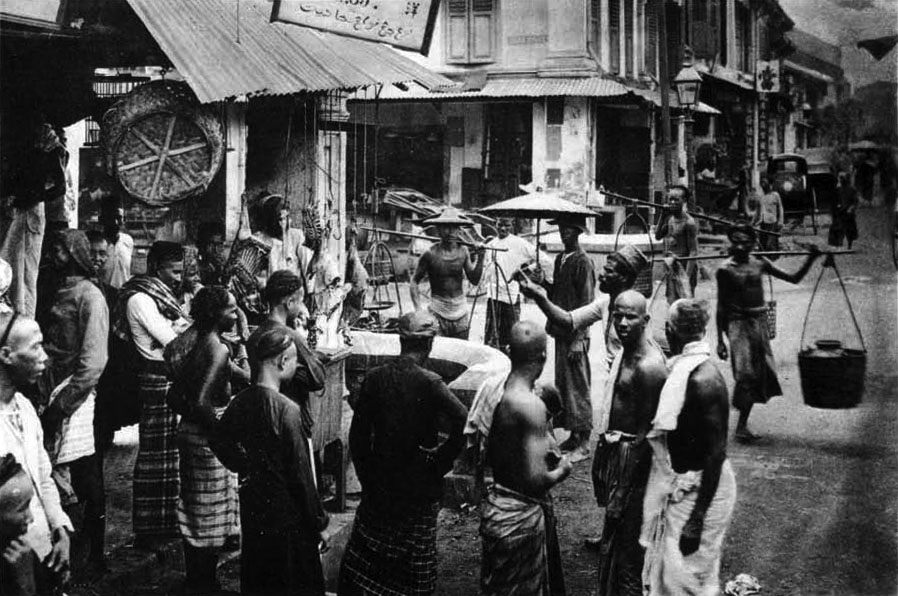|
Miranda Yap
Miranda Gek Sim Yap (August 1948 – 14 October 2015), also abbreviated as M.Yap or MGS Yap, was a professor in the Chemical and Biomolecular Engineering Department of the National University of Singapore, and the Executive Director of the Bioprocessing Technology Institute at the Agency for Science, Technology and Research of Singapore (A*STAR). Education Yap earned her PhD in chemical engineering at the University of Toronto in 1979; she had previously received a basic degree in applied chemistry from University of Singapore, now known as the National University of Singapore (NUS), and a master's degree in biochemical engineering at University College London in 1973. Career She returned to Singapore in 1982 to join NUS. With a government grant, she helped to establish the Bioprocessing Technology Unit (BTU) in 1990, which was later renamed as Bioprocessing Technology Centre (BTC) in 1995 as a National research centre for bioprocessing technology with Yap as the Director. In ... [...More Info...] [...Related Items...] OR: [Wikipedia] [Google] [Baidu] |
Chemical Engineering
Chemical engineering is an engineering field which deals with the study of operation and design of chemical plants as well as methods of improving production. Chemical engineers develop economical commercial processes to convert raw materials into useful products. Chemical engineering uses principles of chemistry, physics, mathematics, biology, and economics to efficiently use, produce, design, transport and transform energy and materials. The work of chemical engineers can range from the utilization of nanotechnology and nanomaterials in the laboratory to large-scale industrial processes that convert chemicals, raw materials, living cells, microorganisms, and energy into useful forms and products. Chemical engineers are involved in many aspects of plant design and operation, including safety and hazard assessments, process design and analysis, modeling, control engineering, chemical reaction engineering, nuclear engineering, biological engineering, construction specification, ... [...More Info...] [...Related Items...] OR: [Wikipedia] [Google] [Baidu] |
1948 Births
Events January * January 1 ** The General Agreement on Tariffs and Trade (GATT) is inaugurated. ** The Constitution of New Jersey (later subject to amendment) goes into effect. ** The railways of Britain are nationalized, to form British Railways. * January 4 – Burma gains its independence from the United Kingdom, becoming an independent republic, named the ''Union of Burma'', with Sao Shwe Thaik as its first President, and U Nu its first Prime Minister. * January 5 ** Warner Brothers shows the first color newsreel (''Tournament of Roses Parade'' and the ''Rose Bowl Game''). ** The first Kinsey Reports, Kinsey Report, ''Sexual Behavior in the Human Male'', is published in the United States. * January 7 – Mantell UFO incident: Kentucky Air National Guard pilot Thomas Mantell crashes while in pursuit of an unidentified flying object. * January 12 – Mahatma Gandhi begins his fast-unto-death in Delhi, to stop communal violence during the Partition of India. * ... [...More Info...] [...Related Items...] OR: [Wikipedia] [Google] [Baidu] |
University Of Toronto Alumni
A university () is an institution of higher (or tertiary) education and research which awards academic degrees in several academic disciplines. Universities typically offer both undergraduate and postgraduate programs. In the United States, the designation is reserved for colleges that have a graduate school. The word ''university'' is derived from the Latin ''universitas magistrorum et scholarium'', which roughly means "community of teachers and scholars". The first universities were created in Europe by Catholic Church monks. The University of Bologna (''Università di Bologna''), founded in 1088, is the first university in the sense of: *Being a high degree-awarding institute. *Having independence from the ecclesiastic schools, although conducted by both clergy and non-clergy. *Using the word ''universitas'' (which was coined at its foundation). *Issuing secular and non-secular degrees: grammar, rhetoric, logic, theology, canon law, notarial law.Hunt Janin: "The university i ... [...More Info...] [...Related Items...] OR: [Wikipedia] [Google] [Baidu] |
Singaporean People Of Chinese Descent
Singaporeans, or the Singaporean people, refers to citizens or people who identify with the sovereign island city-state of Singapore. Singapore is a multi-ethnic, multi-cultural and multi-lingual country. Singaporeans of Chinese, Malay, Indian and Eurasian descent have made up the vast majority of the population since the 19th century. The Singaporean diaspora is also far-reaching worldwide. In 1819, the port of Singapore was established by Sir Stamford Raffles, who opened it to free trade and free immigration on the island's south coast. Many immigrants from the region settled in Singapore. By 1827, the population of the island was composed of people from various ethnic groups. Singapore is a multilingual and multicultural society home to people of groups of many different ethnic, religious and national origins, with the majority of the population made up of Chinese, Malay, Indian and Eurasian descent. The Singaporean identity was fostered as a way for the different ethnic g ... [...More Info...] [...Related Items...] OR: [Wikipedia] [Google] [Baidu] |
Singaporean Chemical Engineers
Singaporeans, or the Singaporean people, refers to Singaporean nationality law, citizens or people who identify with the sovereign island city-state of Singapore. Singapore is a multiracialism, multi-ethnic, multiculturalism, multi-cultural and multi-lingual country. Singaporeans of Chinese Singaporeans, Chinese, Malay Singaporeans, Malay, Indian Singaporeans, Indian and Eurasians in Singapore, Eurasian descent have made up the vast majority of the population since the 19th century. The Singaporean diaspora is also far-reaching worldwide. In 1819, the port of Singapore was established by Sir Stamford Raffles, who opened it to free trade and free immigration on the island's south coast. Many immigrants from the region settled in Singapore. By 1827, the population of the island was composed of people from various ethnic groups. Singapore is a multilingual and Multiculturalism, multicultural society home to people of groups of many different ethnic, religious and national origins ... [...More Info...] [...Related Items...] OR: [Wikipedia] [Google] [Baidu] |


